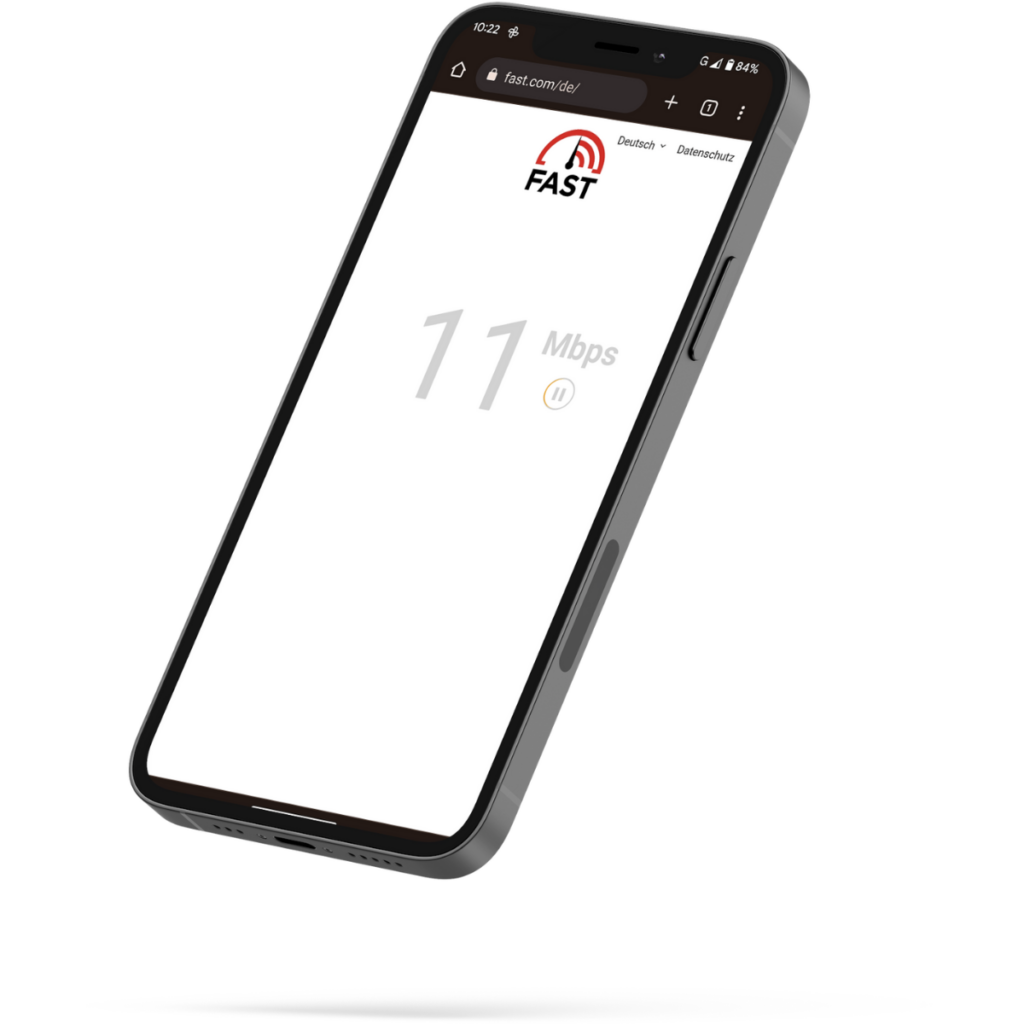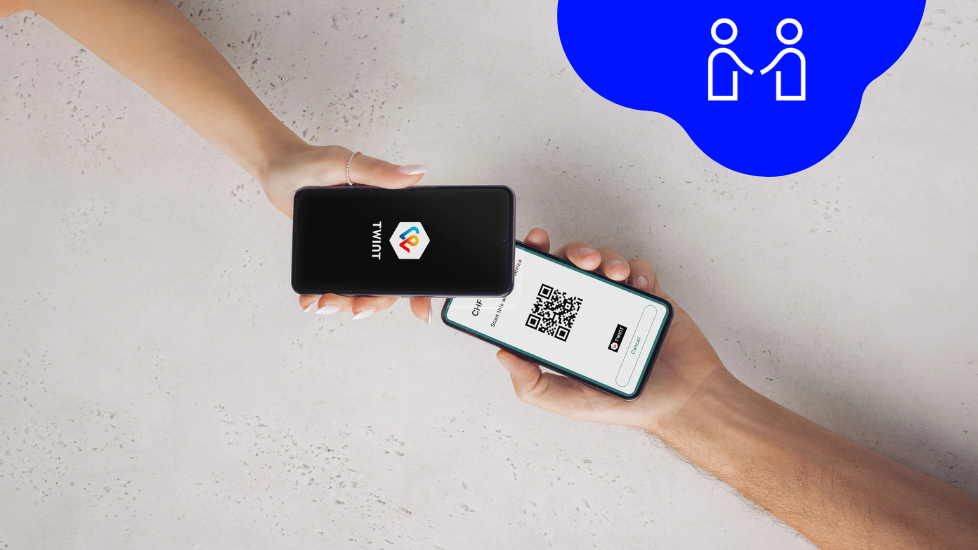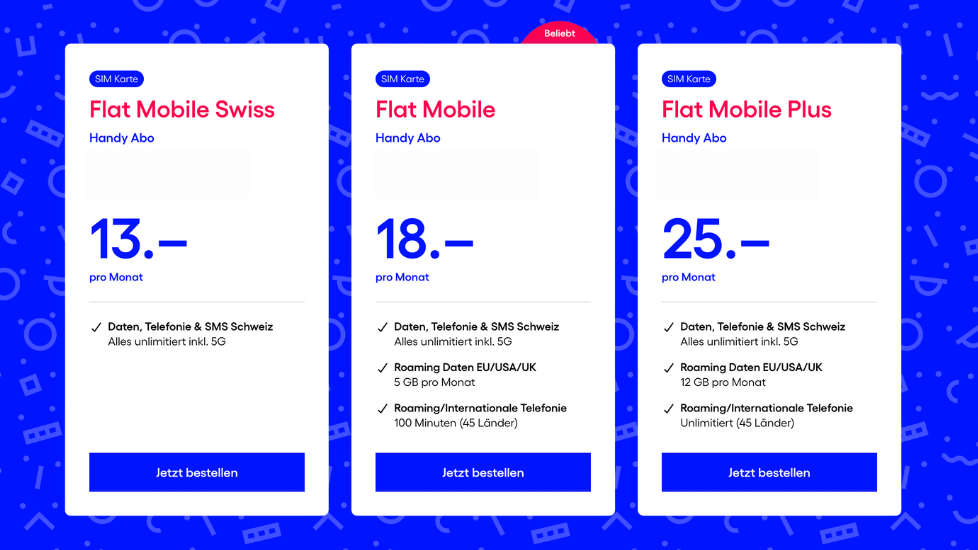How Fast Should the Internet Be for Smartphones?
Smartphones are multifunction devices that we all use a little differently. Knowing your own needs in terms of Internet speed is very helpful when choosing a rate plan, but it’s not always easy. Is 10 Mbits enough or should it be 50 or even 300? There is probably no single correct answer to this question, but don’t worry: If you consider the following three points, you will certainly find the right speed.
Point 1 – How Fast Is Fast Enough?
10 Mbits seems rather ridiculous next to offers that promise 300 Mbits or more, but the difference in practice is often not that obvious. Do you receive your WhatsApp messages later than others with 10 Mbits? Does your YouTube video freeze more often? Does Google Maps not load? The answer is “no” in almost all cases, because 10 Mbits allow a throughput that enables smooth use of almost all applications on your smartphone.
The connection speed on smartphones usually only becomes noticeable when transferring large amounts of data. For example, downloading a 1 GB file at 10 Mbits takes 13 minutes and 20 seconds with a constant connection. Because this is a bit long considering the updates and apps that need to be downloaded from time to time, we have opted for a higher speed in our Flat Mobile cell phone subscription. With 30 Mbits, you can download a gigabyte in 4 minutes and 26 seconds.

The first question you should ask yourself is: How fast do I want to be able to download large amounts of data? The online comparison service Moneyland provides a simple and free online calculator.
Point 2 – What Functions Does My Smartphone Perform?
If your smartphone is just your smartphone, 10 Mbits will easily suffice. You can stream videos, use messenger services and social media, navigate via Google Maps, etc. with this speed. The range of common smartphone applications, as already mentioned, hardly needs more than 10 Mbits transfer rate.
If you want to use your smartphone as a mobile hotspot for one or more devices, or if you want to stream 4K content from your smartphone to a monitor, you should opt for a plan with 30 Mbps, such as Flat Mobile.
Good to know: In Switzerland, the average achievable 5G speed varies between 131 and 205 Mbits depending on the provider. So if you are on the road a lot and do not stay in an ideal location, you can save on expensive gigabit rates.
More about the collection of this data can be found here.
Point 3 – How Much Do I Want to Pay for Mobile Internet?
Of course, most people will think “as little as possible” and there is hardly a provider that does not offer cheap flat rates. Nevertheless, you should consciously ask yourself this question, because as is often the case, “You get what you pay for.
It’s not always clear exactly where the cutbacks are made in low-cost rates, but at Digital Republic it’s the speed. Because 10 Mbits are usually enough for everyday use, they do not cut back on support or contract terms, but simply limit the bandwidth. This is a fair solution, especially since most things do not require a high-speed connection.
Customers benefit from first-class service and do not pay for a speed they do not need. Of course, every provider sets its priorities a bit differently here. But you should definitely set yourself a budget and find out exactly what the low price is made up of in the case of low-price offers.
Choice Made?
If you know what internet speed you need for your smartphone, take a look at Digital Republic’s tariffs! Thanks to extensive customer feedback and many years of experience, our tariffs are perfectly tailored to a wide variety of device types.
For smartphones in particular, we now also offer a full-featured mobile phone subscription including roaming. Flat Mobile combines sufficiently fast 5G Internet (30 Mbits) with unlimited data volume, unlimited calls and texts in Switzerland, and monthly 2G roaming in the EU/USA zone. The perfect subscription for your smartphone for only CHF 18 per month. No activation fee. No minimum contract term. No cancellation period.
Free, fair and progressive!
Discover Our Other News Articles

Payment Terminals for Everyone!
The world is becoming increasingly cashless. Small and medium-sized businesses in particular are faced with the challenge of having to accept electronic payments when dealing directly with customers. The necessary equipment is often expensive, complicated, and comes with a monthly base fee. But there are alternatives!

The Development of Our Ideal Cell Phone Plans for Switzerland
The path to the current Trio Flat Mobile Swiss, Flat Mobile, and Flat Mobile Plus cell phone plans is also an example of how Digital Republic wants to function as a provider and where its priorities lie. We have quickly transformed ourselves from a pure data SIM provider to a cell phone plan provider. And we have completely rethought the development process.

The Affordable Mobile Provider With Award-Winning Service
When it comes to mobile providers in Switzerland, the wheat is often separated from the chaff when it comes to price. Either you pay little for your subscription and do without services like support or 5G, or you go to one of the big providers and pay more than you might like. At Digital Republic, you get both!
